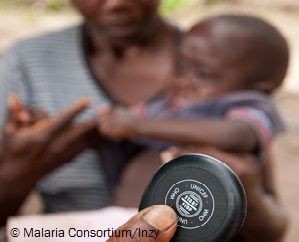This was one of the messages shared in Swaziland recently by Good Shepherd Hospital staff during their Family Health Promotion Day. They day included diabetes and hypertension screening and staff developed a selection of bags and bottles with the following health promotion messages written in Siswati:
- Hypertension can be treated. Get your blood pressure checked!
- Persistent headaches? Blurred or double vision? Regular nosebleeds? Get your blood pressure checked!
- Diabetes can be treated effectively. Get checked for diabetes!
- Excessive thirst? Frequent urination? Tiredness? Get checked for diabetes! It is treatable.
- Eat a balanced diet and help to avoid diabetes and hypertension
- Do 30 minutes of physical activity everyday and help to avoid diabetes and hypertension
Elsewhere at Good Shepherd Hospital, staff are now trained in TB infection prevention following the launch of their hospital wide TB Infection Prevention and Control Policy.











